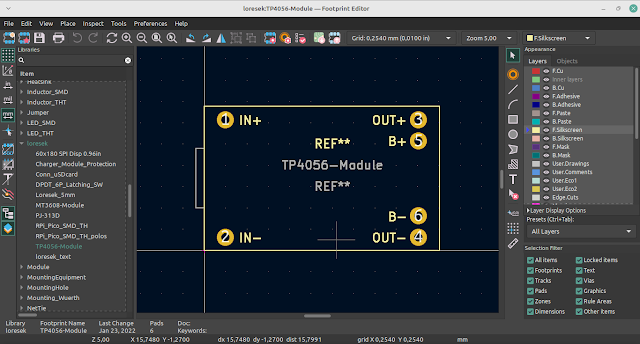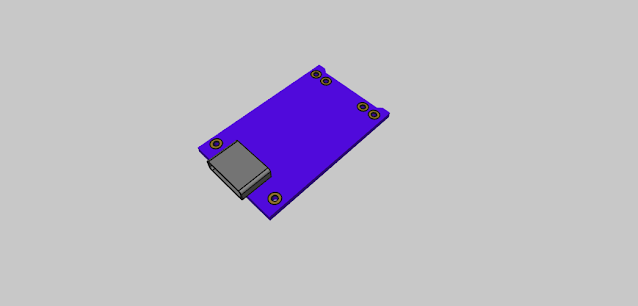Enhance Your KiCAD PCB Designs with the KiCAD Image Injector Python Tool
Introduction
Attention all KiCAD PCB designers and enthusiasts! We have an incredible tool that will elevate your design projects to new heights. Introducing the KiCAD Image Injector Python Tool, a stand-alone application that empowers you to replace rectangular template areas on your KiCAD PCB with striking black and white images or QR-Codes. Say goodbye to plain and monotonous templates and say hello to visually captivating and informative PCBs. Get ready to revolutionize your design process as you download and experience the magic of the KiCAD Image Injector!
Download the Tool
To embark on this design-transforming journey, head over to the link below:
Here, you'll find the KiCAD Image Injector Python Tool, ready for download and free to use. Seamlessly integrated with KiCAD, this tool will become your go-to solution for enhancing the visual appeal and functionality of your PCB designs. Don't miss out on the opportunity to take your projects to the next level!
Why Choose the KiCAD Image Injector Python Tool?
1. Endless Design Possibilities
With the KiCAD Image Injector, you have the freedom to infuse your PCBs with endless design possibilities. Replace plain rectangular template areas with captivating black and white images, adding a touch of elegance and style to your designs. Or, opt for QR-Codes to provide essential information and interactivity to your PCBs. The tool opens up a whole new world of creative expression within KiCAD's powerful design environment.
2. Effortless Integration and Stand-Alone Convenience
The KiCAD Image Injector is designed to seamlessly integrate with KiCAD, ensuring a smooth and user-friendly experience. As a stand-alone tool written in Python, it operates independently of KiCAD, making it highly accessible to all users. No advanced coding or complicated setup required - just download, install, and inject images or QR-Codes with ease.
3. Enhance Functionality and Communication
Beyond its aesthetic appeal, the KiCAD Image Injector enables you to enhance the functionality and communication of your PCB designs. Use QR-Codes to provide links to datasheets, online documentation, or interactive resources. This not only streamlines the design process but also ensures valuable information is readily available to end-users.
Tips for Using the KiCAD Image Injector Python Tool
1. Familiarize Yourself with Template Areas
Before diving into the image injection process, ensure you are familiar with the rectangular template areas on your KiCAD PCB. These areas will be replaced with your selected images or QR-Codes. Understand the dimensions and positions of the template areas to achieve precise and cohesive results.
2. Optimize Image and QR-Code Selection
Choose images or QR-Codes that align with the purpose and aesthetics of your PCB design. For images, consider high-contrast black and white graphics that complement the overall layout. When using QR-Codes, select ones that lead to relevant and valuable resources for end-users.
3. Test and Iterate
Once you have injected images or QR-Codes into your PCB design, perform thorough testing to ensure optimal functionality and visual appeal. Iterate as needed, making adjustments to achieve the desired outcome. The iterative process will result in polished designs that align with your vision.
Conclusion
The KiCAD Image Injector Python Tool is a game-changer for KiCAD PCB designers, offering a seamless and creative way to replace rectangular template areas with captivating images or QR-Codes.
Downloading this stand-alone tool from the official unlocks endless design possibilities and elevates the visual appeal and functionality of your PCBs. So, seize this opportunity to enhance your KiCAD designs and take your projects to new heights.
Visit the provided link, download the KiCAD Image Injector, and prepare to inject your PCBs with artistry and innovation!











